Trump's UN Tirade: Borders, Energy, and the Global Economic Reckoning
President Donald Trump's address to the United Nations General Assembly this week unfolded like a high-stakes boardroom showdown, where the former real estate magnate turned commander-in-chief la
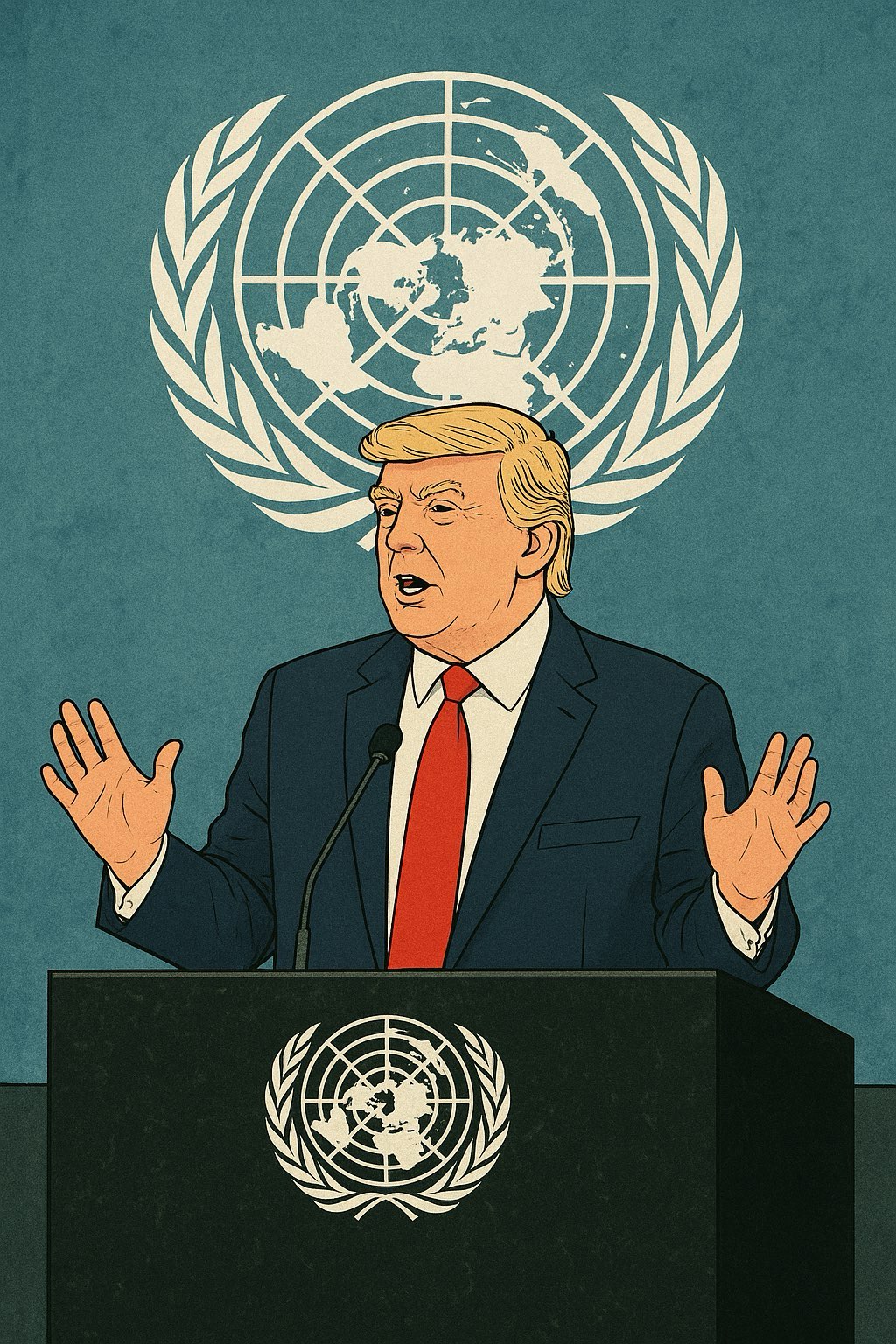
President Donald Trump's address to the United Nations General Assembly this week unfolded like a high-stakes boardroom showdown, where the former real estate magnate turned commander-in-chief laid bare his frustrations with global institutions.
In a nearly hour-long speech laced with personal anecdotes and pointed barbs, Trump zeroed in on immigration and climate policies as existential threats to national prosperity. For investors and economists watching from afar, his words signal potential shifts in U.S. trade dynamics, energy markets, and international funding flows—reminders that geopolitical rhetoric can ripple through balance sheets worldwide.
The speech, delivered amid malfunctioning equipment and a backdrop of unresolved grudges, underscored Trump's view of the UN as an inefficient bureaucracy. He opened by lambasting the organization for minor mishaps, like a broken escalator affecting First Lady Melania Trump and a faulty teleprompter, while tying these to broader complaints about the UN's lack of support for his diplomatic deals. "I ended seven wars... and never even received a phone call from the United Nations offering to help," he declared.
This disdain extends to financial commitments: The U.S. has largely halted payments to the UN since Trump's return to office, accumulating arrears from 2024. Such moves could strain multilateral funding mechanisms, potentially forcing other nations to shoulder more costs and altering global aid budgets that impact emerging markets.
Immigration Under Fire: Economic Borders in a Borderless World
At the heart of Trump's critique lay uncontrolled immigration, which he framed as the era's paramount political—and by extension, economic—challenge. "Countries that cherish freedom are fading fast because of their policies on these two subjects," he warned, lumping immigration with climate initiatives. He accused the UN of "funding an assault on western countries and their borders" through aid to migrants, positioning the body not as a peacemaker but as an enabler of invasions.
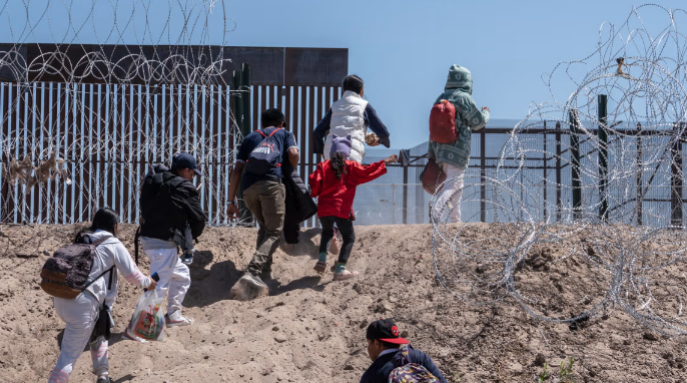
From a financial lens, Trump's stance revives debates on immigration's role in labor markets and fiscal health. He praised his own border crackdown as a humanitarian measure that prevents perilous journeys, implicitly arguing it safeguards U.S. economic resources.
Critics might counter that stringent policies could exacerbate labor shortages in sectors like agriculture and construction, where migrant workers fill gaps. Yet Trump highlighted nations like Greece and Switzerland for lax approaches, suggesting their economies suffer from diluted sovereignty.
He didn't spare allies: The UK and Germany drew fire for green-energy pursuits intertwined with open borders, which Trump linked to declining national strength. Investors in European equities might note this as a harbinger of transatlantic tensions, potentially affecting trade pacts or tariffs.
Trump's promotion of a campaign hat proclaiming "Trump was right about everything" served as a self-affirming nod to his predictive prowess on these issues, but it also hints at a protectionist agenda that could reshape global supply chains. If borders tighten further, multinational firms reliant on cross-border labor could face higher costs, pressuring profit margins.
Climate Dismissal: Betting Against the Green Revolution
Trump's dismissal of climate change as "the greatest con job ever perpetrated on the world" struck a defiant chord, praising "clean, beautiful coal" over renewables. He mocked the term "coal" itself, insisting on euphemistic phrasing in White House directives—a quip that drew sparse laughter but revealed a deeper policy rift. This rhetoric aligns with his administration's pivot toward traditional energy sources, arguing they underpin greatness.
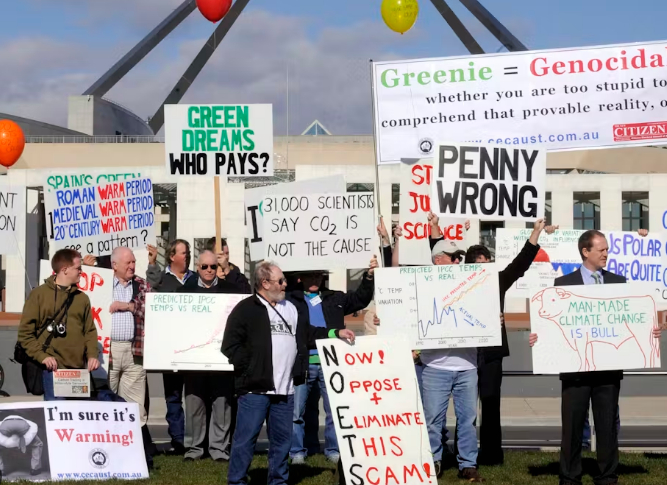
Economically, this could buoy fossil fuel stocks while challenging the burgeoning clean energy sector. Trump's barbs at the UK and Germany's green policies imply skepticism toward subsidies and transitions that he sees as burdensome. For global markets, a U.S. retreat from climate accords—echoing his first-term exits from UNESCO, the Human Rights Council, and the WHO—might slow international investments in renewables. He warned bluntly: "Your countries are going to hell" without strong borders and fossil fuels, framing climate action as a luxury that erodes competitiveness.
Consider the implications for commodity markets: A renewed emphasis on coal and oil could stabilize prices in those arenas, benefiting producers in Appalachia or the Permian Basin. Conversely, it risks alienating partners pushing for net-zero goals, potentially leading to carbon border taxes from the EU. Trump's meeting with European Commission President Ursula von der Leyen, where he urged faster weaning from Russian energy, highlights this tension. Von der Leyen concurred—"President Trump is absolutely right. We’re on it"—suggesting possible alignments in energy security that could favor liquefied natural gas exports from the U.S., boosting American firms like Cheniere Energy.
Geopolitical Ripples: Alliances, Censorship, and Aid
Beyond borders and energy, Trump targeted specific nations, violating UN norms by naming critics outright. Brazil faced accusations of censorship and repression under President Luiz Inacio Lula da Silva, though Trump softened the blow with a humorous aside about their brief encounter: "He seemed like a very nice man... At least for about 39 seconds we had excellent chemistry." The two agreed to meet next week, per Brazilian confirmation, which could open doors for bilateral deals amid Trump's broader critique.
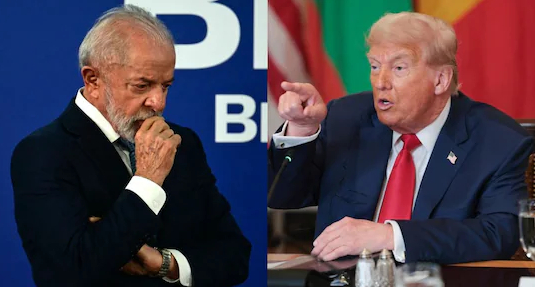
This selective engagement points to a transactional foreign policy with financial undertones. Trump's endorsement of Argentina's President Javier Milei, complete with a printed social media post handed over in person, signals support for deregulation-friendly leaders. When pressed on U.S. aid for Argentina, Trump demurred: "We’re going to help them. I don’t think they need a bailout," though the White House hinted at forthcoming measures. For bondholders and investors in emerging markets, such gestures could stabilize currencies or attract capital inflows, countering volatility from UN funding disputes.
Palestine and Iran also drew ire, with Trump barring Palestinian Authority President Mahmoud Abbas from the assembly and restricting Iranian diplomats' visas. He opposed recognizing a Palestinian state, arguing it rewards Hamas. These moves could escalate Middle East tensions, affecting oil prices and defense stocks. Meanwhile, his upcoming meeting with Ukrainian President Volodymyr Zelenskiy underscores U.S. leverage in European conflicts, where energy dependencies remain a flashpoint.
UN's Role in Global Finance: Empty Words or Essential Arbiter?
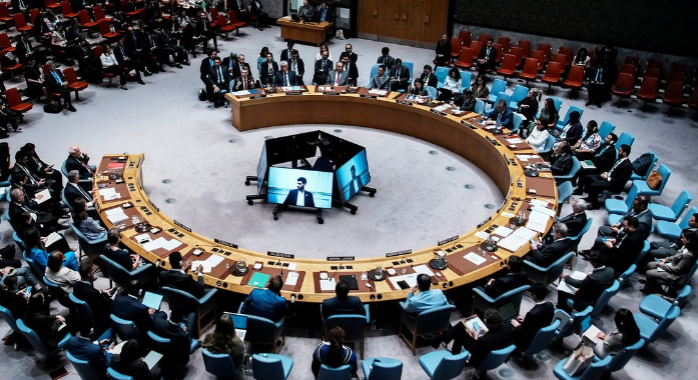
Trump's overarching question—"What is the purpose of the United Nations?"—resonated with bipartisan frustrations over its inefficacy. He derided it as a purveyor of "empty words" and "strongly worded letters" without action, echoing complaints that the body functions more as a talking shop than a problem-solver.
Financially, this critique amplifies risks to multilateral institutions. The U.S.'s unpaid dues could prompt reforms or force the UN to cut programs, impacting humanitarian aid that stabilizes fragile economies. Investors in international development bonds or funds tied to UN initiatives might face uncertainty. Yet Trump's post-speech meetings—with UN Secretary General Antonio Guterres, von der Leyen, and Milei—suggest pragmatic outreach amid the bluster.
The audience's muted response, punctuated by occasional applause and UN President Annalena Baerbock's reassurance about the teleprompter, highlighted the speech's divisive tone. For markets, Trump's combative style reinforces a world of fragmented alliances, where economic policies hinge on nationalistic priorities.
In sum, Trump's UN appearance wasn't just a airing of grievances; it was a blueprint for an America-first economic resurgence, prioritizing borders and fossil fuels over global consensus. As currencies fluctuate and energy futures adjust, the speech serves as a stark reminder: In an interconnected economy, one leader's rhetoric can redefine the rules of the game. Whether this leads to renewed U.S. dominance or isolated headwinds remains the trillion-dollar question.
Disclaimer: The views in this article are from the original Creator and do not represent the views or position of Hawk Insight. The content of the article is for reference, communication and learning only, and does not constitute investment advice. If it involves copyright issues, please contact us for deletion.